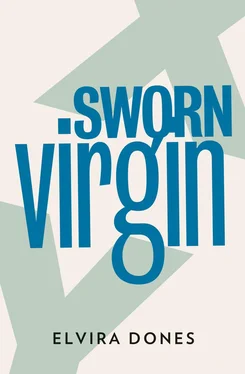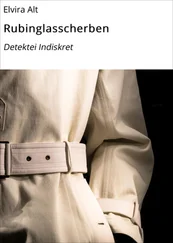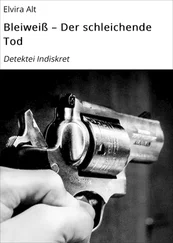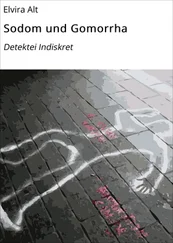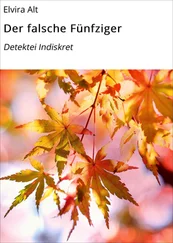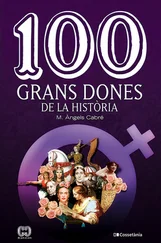The following day, Hana rummages through Gjergj’s clothes chest, at the same time asking herself what she is looking for. She finds his national costume and puts it on, still wondering what she is doing. She rolls the pants up at the waist and tries to keep them up by tightening the red waistband. What are you doing? She stares at the wall in front of her. She smiles at the stone, and feels sorry for it. The stone has never been kissed. She leans her forehead on it and rests there for a while.
When she goes downstairs and presents herself to Gjergj dressed as a man, her uncle is struck dumb. But all of a sudden his chin starts to twitch and, however tightly he locks his jaw, it is not enough to hold back his emotion.
It’s November 6, 1986.
Hana scratches the date on the wall of the guest room. It takes her a good hour to do it properly.
When she has finished, she goes back to Gjergj. He passes her his rifle. She takes it and examines it closely. It has belonged to six generations of Doda clansmen. Gjergj has kept it oiled for thirty-six years. Hana is still standing awkwardly. Now what? she asks herself. Now what? Now nothing. Now there is nothing. What time is it now in Paris? She’s supposed to sit like a man, with her legs crossed, she’s supposed to smoke a pipe like Uncle Gjergj. She looks at the legs sticking out of her pants, like a ladybug’s, she thinks. To postpone the moment when she has to sit like a man, she stays standing.
‘Are you sure you want to take this step, dear daughter?’
‘My name will be Mark. Mark Doda.’
The next day the news spreads around Rrnajë and the village is alive with gossip. The men will greet her as a man, and the women will avoid her eye.
She starts to keep a diary.
In the five months that follow, Hana takes care of Gjergj, the house, the animals, the memory of Katrina. She tries to make her gait heavier, more masculine. It’ll take time. Every now and then she gives herself a break. ‘There is no hurry,’ she tells herself.
Don’t run, don’t make a noise, don’t think. There’s no hurry. Not anymore. There’s all the time in the world, nobody is waiting for you. You don’t have to worry anymore about how soft your hair is; you don’t have to worry about finding nice clothes; a world’s worth of snow separates Rrnajë from Paris.
Now you’re a man. You’re a man. A man! You’re not allowed to look at real men anymore.
Everything is just fine, she makes herself believe. The snow, the dark nights, the dogs chasing each other, the shadows of the wolves across the snowy landscape, hurrying like busy travelers. The mountains protect you and overwhelm you. The echo of centuries rings in your heart. They save you from the greasy panting of redneck truck drivers.
The memory is still alive. The terror she had felt. The night she had spent in the woods, her teeth chattering with the fear that, having escaped from one man with his pants open, another would suddenly appear from behind one of those trees.
She hadn’t slept a wink. She had sharpened the darkness with her night eyes. If anybody had approached her she would have killed him. She had kept her knife close to her chest and her heart had never stopped beating furiously. She had been famished, she had been angry, she had called to her mother by her beautiful name; she had even invoked her father, whose face she couldn’t remember.
She had prayed to God, and with mute tears; to the same God who had been banned a year before Hana was born and whom Felicità had always talked about in secret.
She had managed not to freeze to death. At dawn she had crept through the alleys of Rrnajë without being seen, protected by the snow. When she got home, the kulla had become hard as a rock. A grave for her old self. She had become a man.
‘Honor to you for what you have done,’ Gjergj’s guests repeat in the months that follow. He is proud of her. You can see it in his eyes, which refuse to surrender to death, and in the way he passes Hana the bottle of raki.
‘Gjergj, bre burrë now you have a son and the honor of the kulla will not die.’
Hana learns to smoke with them. She stinks like them. She copies their laughter and makes her voice more gravelly. Her throat and ribs hurt.
The whole of the Bjeshkët e Namuna — all the ‘cursed mountains’ — knows by now that the Dodas’ daughter has become a man.
Some of the village men fire volleys of rifle shots to celebrate the event, and the man from the Party does not say a thing. Nor does the policeman. If things stay within limits, the Party is magnanimous. If a young girl decides to become the man of the house, well, traditions are to be respected. Within limits. Within certain limits.
One day Lila, her only first cousin, comes to Rrnajë with Shtjefën, her young husband, to visit her parents. She looks at Hana as if she has flown in from Mars.
‘Hana, sweetie, what have you done? You of all people?’
Lila looks like a sheep. Her terrible perm makes her hair as fluffy as an old woman’s. It’s traditional: young wives curl their hair using an iron heated on the fire.
‘Look at yourself; you look like a grandmother.’
‘Why did you do it, Hana?’
‘Your hair makes you look like an old lady. Your headscarf makes you look like an old lady.’
‘I’m married now.’
‘That’s pretty obvious.’
‘Look, I love Shtjefën and I didn’t walk down the aisle like a lamb to slaughter. He’s a good man, he’s not like the others.’
‘But you wait on him without saying a word, and you let your in-laws tell you what to do, don’t you?’
‘What do you mean? It’s tradition. There are such things as rules. Why did you do it, Hana?’
They observe each other. Lila waits for an answer, which Hana doesn’t provide.
‘You were shaping up to be a great young woman, you could have been a schoolteacher, and now …’
‘Call me Mark,’ she says to her cousin, hugging her so as not to be overwhelmed by tears.
‘You’re crazy,’ Lila says, disoriented. ‘You’re totally crazy, Hana.’
Gjergj dies on a sunny May day in 1987. Everything is ready. The house is full of food, considering what little there is up in the mountains. The honor of the Doda family is more secure than ever. Mark receives condolences. Men and women show him equal respect. Nobody calls her Hana any longer.
The kulla is squeaky clean. Old habits die hard, and she struggles to neglect the housework. But she is trying. Men don’t do women’s work; that’s the rule of the Kanun. 11
A week after the funeral, Hana weeps in front of the pile of fresh earth that is Gjergj’s grave. She is alone, so nobody will see her crying.
She cries for a long time, and then looks up at the clear blue sky, the bare cemetery, the small stretch of Rrnajë that extends beyond the graveyard. The sun is so warm and reassuring, it makes her feel as though she’s on the top of the world.
On a day like this, her mother would have started singing.
Shtjefën gets home a little earlier than usual, and in a good mood. Lila is due back in half an hour. Jonida is doing her homework.
‘I got you a job,’ he says to Hana. ‘The interview is tomorrow. See what you can do. They’ll give you a two-week trial and then they’ll decide. You’ll be a daytime attendant at a parking lot near the subway station.’
Hana is surprised, and thanks him.
‘I know you don’t like being dependent on us,’ he adds apologetically. ‘And I didn’t do it to put pressure on you if you don’t feel up to it …’
Hana has cooked dinner, which they will eat at around seven thirty, when Lila gets back. Usually she rushes in and changes out of her work clothes, tearing them off as fast as she can. She takes a quick shower and then they have dinner.
Читать дальше
